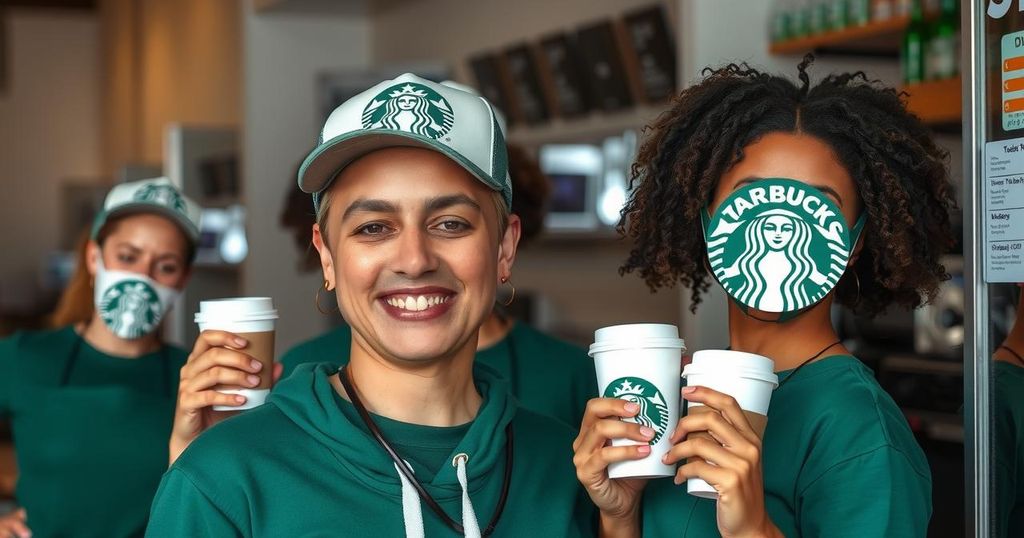Denver Starbucks Baristas Advocate for Fair Wages and Unionization

Starbucks baristas in Denver have filed for a union election, raising demands for fair wages and equitable scheduling amidst national protests. This movement reflects broader concerns over labor practices at Starbucks, with employees advocating for better working conditions while facing challenges like inflation. The ongoing actions underscore a growing trend of labor organization among Starbucks employees across the country.
Starbucks baristas from the West Alameda Avenue and South Federal Boulevard location in Denver have recently filed for a union election, actively organizing to pursue better working conditions. This movement coincided with protests across different locations in the Denver metro area, where baristas rallied for fair wages and equitable scheduling amidst claims of unfair labor practices by Starbucks nationwide. The actions coincide with Starbucks’ peak operational season, underscoring the urgency of their demands.
Luis Sanchez Hernandez, an 11-year shift supervisor, expressed his motivations for unionizing, stating, “I am unionizing for better scheduling practices and to improve work-life balance.” This sentiment of solidarity was echoed by other baristas, such as Brianna da Silva, who emphasized the importance of collective action for an improved work environment. With over 520 stores in the U.S. aiming for union recognition, strikes have also occurred in cities like Chicago and Los Angeles, highlighting a growing movement against perceived unjust labor practices.
A representative from Starbucks Workers United stated that numerous workers from various stores in the Denver area are uniting at the Colorado boulevard location to advocate for fair wages, equitable treatment, and better scheduling. One worker in Los Angeles articulated frustration over inadequate pay increases, noting that a 1.5% annual raise is insufficient when contrasted with inflation.
Starbucks responded to the strikes, downplaying the impact of the walkouts on store operations while asserting their respect for employees’ rights to engage in lawful protests. Yet, the company has previously been criticized for alleged union suppression, facing numerous claims of unfair employment practices. The National Labor Relations Board had ruled against Starbucks for unlawfully terminating a barista who was also a union organizer, yet the worker has yet to receive their compensation.
Shay Mannik, a barista and union organizer, articulated the gravity of their situation, stating, “We would all rather be working and receiving our full pay and our full tips but this is more important; to be able to receive a long-term actual livable wage so we do not have to pinch pennies with our tips for the holidays.” This highlights the workers’ determination to secure better wages and working conditions, marking a significant and transformative moment in labor advocacy in the coffee industry.
The struggle for equitable labor practices among Starbucks baristas reflects a growing movement throughout the United States. With many employees advocating for better wages, fair scheduling, and improved working conditions, this initiative coincides with increasing scrutiny of corporate labor policies and practices. Unions nationwide have made significant strides, leading to organized protests and walkouts as employees demand recognition and protection against unfair labor practices, especially amid rising inflation and economic pressures.
In summary, Starbucks baristas in Colorado are uniting to demand fair wages, improved scheduling, and equitable workplace practices through the formation of a union. Their collective actions exemplify a significant movement for labor rights within the coffee industry, coinciding with similar protests across the nation. As these baristas strive for better working conditions and seek to highlight the challenges faced by employees, their voices contribute meaningfully to the ongoing discourse regarding labor practices in the United States.
Original Source: www.cbsnews.com







